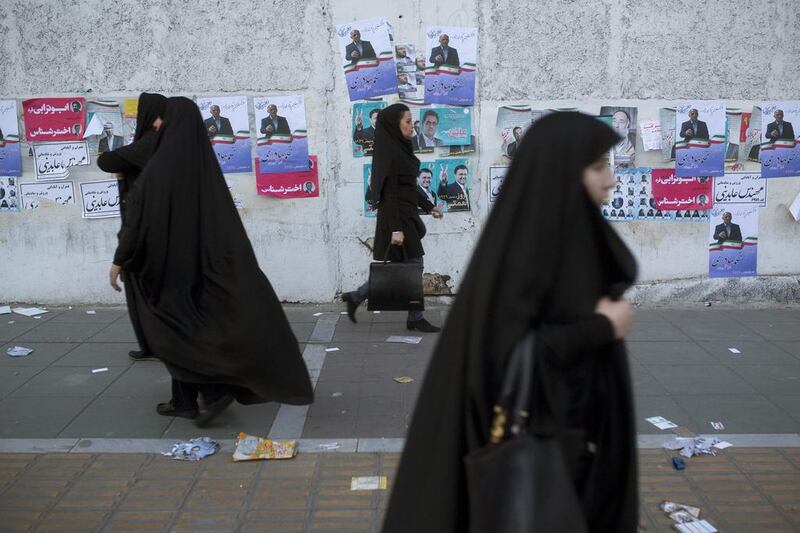Sometime today, the final results in Iran’s election are expected to be announced. Preliminary results, particularly from Tehran, were encouraging to the reformist camp, with, with reformers taking 15 of 16 seats in the capital.
But what exactly is this reformist camp? The distinction, often drawn in western media, is between reformers and conservatives, with the former said to be closer to the president, Hassan Rouhani. But the very conservative Guardian Council, which vets candidates before they can stand for election, already excluded many of those people considered reformers – including Hassan Khomeini, grandson of Ayatollah Khomeini, who is considered to be close to Mr Rouhani.
The truth is that Iran’s politics are complex and not easily reducible to the binaries often loved by media outlets. It makes more sense to see the divide as between those supportive of Mr Rouhani’s nuclear agreement and those against it. So far, the results do seem to support his camp.
Where does that leave the Arab world? Iran’s influence has rarely been positive over the past 10 years, or indeed before. It is a matter of public record that the country has meddled in Yemen, in Syria, in Iraq and in Lebanon. Genuine reformers would hopefully see that an emerging Tehran needs to tread a more moderate path.
Will this election take Iran in a more moderate direction? Will the country finally seek a more consensual approach to regional problems? Will it, above all, start to behave as a mature nation among nations, and respect the sovereignty of its neighbours?
This newspaper hopes so. We have long argued that a prosperous Iran is in the interests of the Gulf. But the signs are not good. Iran persists in seeing its strategic future in allies such as Bashar Al Assad, Hizbollah and the Houthi rebels. The leadership appears to want Iran’s influence to spread through proxies rather than diplomacy. One election won’t change decades of foreign policy, but it can hopefully begin a much needed – and long overdue – shift. That would be reform worth celebrating.





